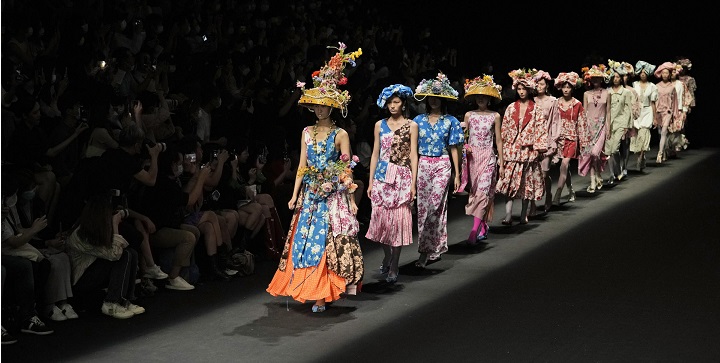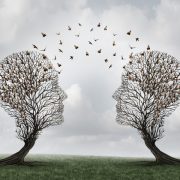
Pechino: settimana della moda
China confronts many dramatic choices and contradictions in this crucial historical moment for the country and the world. Facing American failures in Afghanistan and the Middle East, it may well draw many wrong conclusions.
Nationalism is ultimately a zero-sum game; it pits my country against yours, my interests against yours. Cooperation can only be short-term and occasional; ultimately, you and I are enemies even as we split the shares of common loot.
Liberalism, ideally, isn’t that. By fits and starts, since the late 17th century in Europe and its colonies, it replaced an old international order based on religion, Christianity, with one based on the ideas of fair trade and liberty. Then it exported this model worldwide. Liberalism isn’t perfect, and nationalism isn’t all bad. But it was liberalism that produced a qualitative giant hike in economic and social growth for the first time in human history. It rapidly multiplied resources and thus led to a massive increase in population and incremental improvement of quality of life.
What path will China choose?
On the other end of the spectrum, “Confucianism”—or however we may choose to call the traditional Chinese imperial order—caused China to miss two opportunities to join a globalized order in the 17th and 19th centuries, when it was challenged by the Spanish/Portuguese then by the British. Both times it succumbed to foreign domination, first by the Manchu and then by several Western states.
It was terrible for China both times, but at least the second time one foreign power, the Americans, saved China from a second Manchu-like domination led by Japan, and China retained its independence. The US did not try to invade and conquer China when it could have. It didn’t do so for many reasons, including because it believed in the efficacy of a liberal international order.
Mao, inspired by the thinkers of his time like Hu Shi and Feng Youlan, saw ancient Chinese Mohism and legalism as ways to approximate China to the Western world and fight “Confucianism,” deemed the main culprit of China’s decadence.
In the first half of the 20th century, Chinese intellectuals took on communism, believing it was the latest Western political tool and technological idea, more modern than democracy, by which they could leapfrog their underdevelopment. At the 1942 Yan’an conference, Mao won the intellectual debate in the country by arguing that China could not go back to Confucian ideas.
Is China now reversing the conclusions of the Yan’an conference?
The US made many mistakes in the past 18 years, but does it prove that Confucianism will work better in the world and China than liberalism?
If China pursues its Confucian mold again, like in the 17th and 19th centuries, it could be lost by refusing to modernize and dragging its feet ideologically. That doesn’t mean that all tradition must be abandoned—quite the contrary. Not all traditions followed Confucius; he might have been a minority at the time, and many advocated fei ru 非儒, opposing the Confucians, well before Mao did.
Certainly, Mao played with ideas for his own purposes of power. But ideas need to be respected in their own logic; otherwise, picking and choosing logic for temporary power gain will destroy countries, as happened to Maoist China.
Presently, China doesn’t want a trade and economic decoupling with the world, but does it want to abide by fair trade rules, pivotal for the balance of international liberalism? China doesn’t wish to decouple but pushes a nationalistic agenda; how can the two square off?
Exporting democracy can be a mistake, but if the US hadn’t done it in the 1940s, Europe would still be fascist or communist. Democracy can make mistakes, but to correct them, do we want to abolish democracy? It’d be like saying: to avoid falling ill, let’s kill the patient. Are we serious?






a ignorância cultural do pensamento ocidental(liberal???)chega a ser cômica
a China não se pretende ser exemplo de nada (contrário do ocidente),tentar depreender corolários sócio-ecônomicos a partir de uma pobre teoria liberal deveria ser condição para que voltassem a escola e estudassem a fundo história contemporânea
a partir de 2014….
“Liberalism, ideally, isn’t that. By fits and starts, since the late 17th century in Europe and its colonies, it replaced an old international order based on religion, Christianity, with one based on the ideas of fair trade and liberty. Then it exported this model worldwide. Liberalism isn’t perfect, and nationalism isn’t all bad. But it was liberalism that produced a qualitative giant hike in economic and social growth for the first time in human history. It rapidly multiplied resources and thus led to a massive increase in population and incremental improvement of quality of life.”
Let’s keep a clear eye on what happened.
In the Middle Ages Europe consisted of many small countries of which many were usually at war. It develops guns and gun powder, both Chinese inventions, to a considerable degree. It armed both warships and merchantmen with guns. When the Portuguese entered the Indian Ocean they succeeded in capturing the main trades of that ocean by using these guns. Later the Dutch, English and French took over from the Portuguese also by using guns.
Nutmeg came from the Banda Islands. The Dutch forced the leaders to sign an “agreement” to only sell to them, under threat of violence. When they still sold to English and Portuguese traders, probably also under threat of violence, the Dutch used Japanese mercenaries to massacre most inhabitants and enslave the survivors. Christianity as well as Liberalisme are flexible enough to approve of such actions.
Europeans were so able to collect vast resources from Asia, as they were doing from the Americas, to make them very rich. Some European countries were able to improve their infrastructure and to develop industries. Great Britain became so well industrialized that it developed during the nineteenth century the Free Trade doctrine and it built itself a huge navy to give itself a stronger position in all markets around the world and so prevent being overtaken by another country. However it didn’t succeed in the USA.
After the Second World War US adopted the same doctrines. A financial problem led president Nixon to abandon the gold peg of the dollar fifty years ago, since when it was possible for US to improve the position of the dollar by running a vast balance of payments deficit. It also enabled it to spend as much on “defense” as the next dozen countries and to remain at war very nearly permanently. And it made it possible for US companies to buy or set up companies cheaply in other countries. It developed the concept of the “International Liberal Rules Based Order” in which it sees itself as suzereign over all other countries and write and changes the rules as it sees fit. Its dollar is THE international currency to be manipulated as “necessary”.
It was deceived by China. China has been industrialized with US assistance and has now the largest economy in the world as far as material production is concerned. But it does not accept US hegemony. It wants the world to go back to the Charter of the United Nations, no interference in the internal affairs of another country.
US can only have its economy ticking over by creating true vast amounts of dollars which end up partly in other countries to pay for imports, partly in the “pockets” of a small number of multi billionairs. It’s a Rigged Market economy. But remember the old saying: what can’t go on wont go on.
Francesco raises the right questions.
Liberal democracy which has to include capitalism moves forward the way some ferries dock. As they approach the terminal crosscurrents take wffect and the ferry bangs against the right piles then the left piles and makes progress toward the terminal. That’s the way liberal democracies move. As Churchill said -and I Paraphrase -liberal democracy and capitalism are a poor form of government except for all the others which are worse.
China can be seen to be facing two momentous decisions. One: follow Xi into a communist morass, slowing or stopping the type of economic progress that has been made.
Second would be the course of liberalization and sticking with it for the centuries it’ll take to get it right. The US has been trying for 245 years and hasn’t gotten it right yet.
I miss talking to you Francesco. Let’s do it again soon.
Paul Dragoumis
Right. Let’s whitewash the liberal order with simply “Liberalism isn’t perfect.” After all you can’t be talking about bloody colonization, slavery, the outright stealing of massive resources from S. America, etc. You can’t be talking about the few trillion that was stolen from India, as well as the mass famines that were similar to scale to the Great Leaf Forward, that occurred under British rule.
It’s obvious that Liberalism isn’t the right way. Confucianism perhaps isn’t the right way either. Any read sinologist would understand ideas about syncretization.
Bravo Francesco (come sempre)! Ma e’ davvero possibile una Cina Liberale?